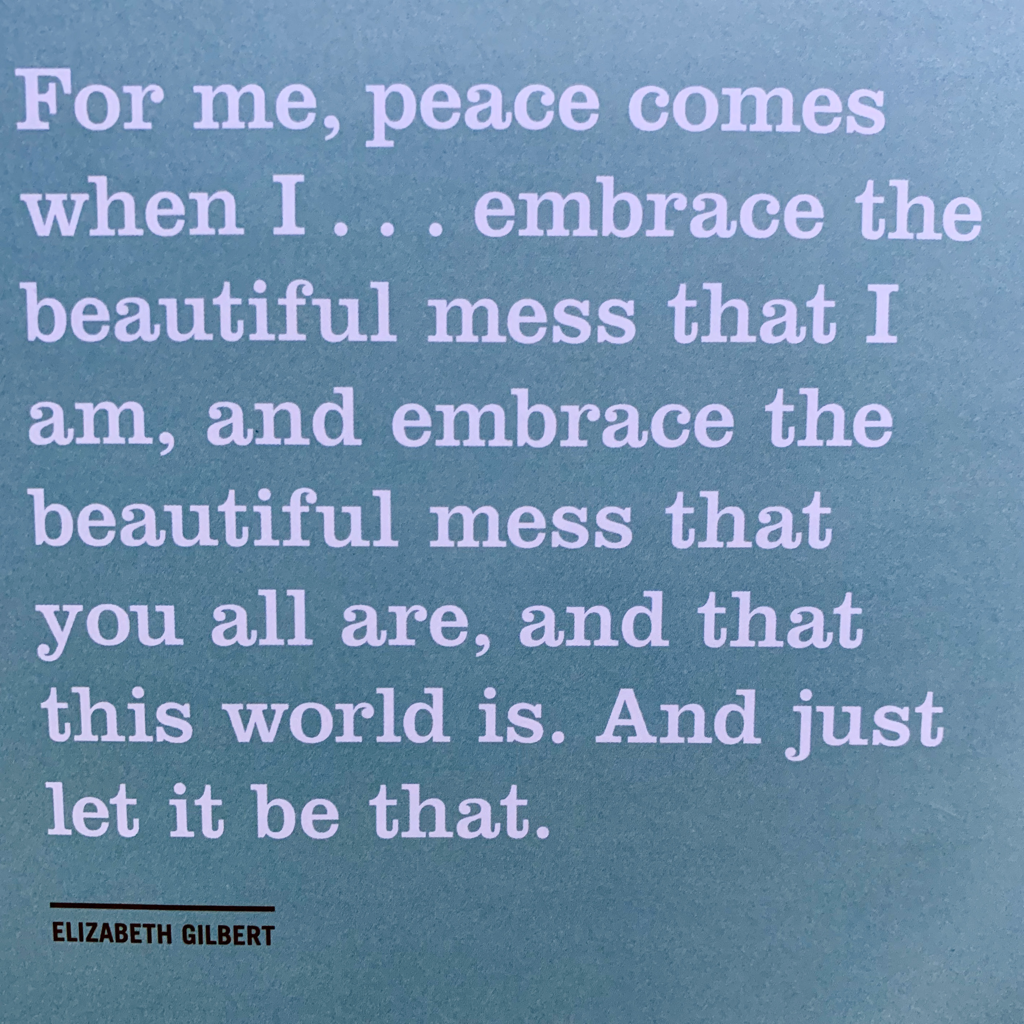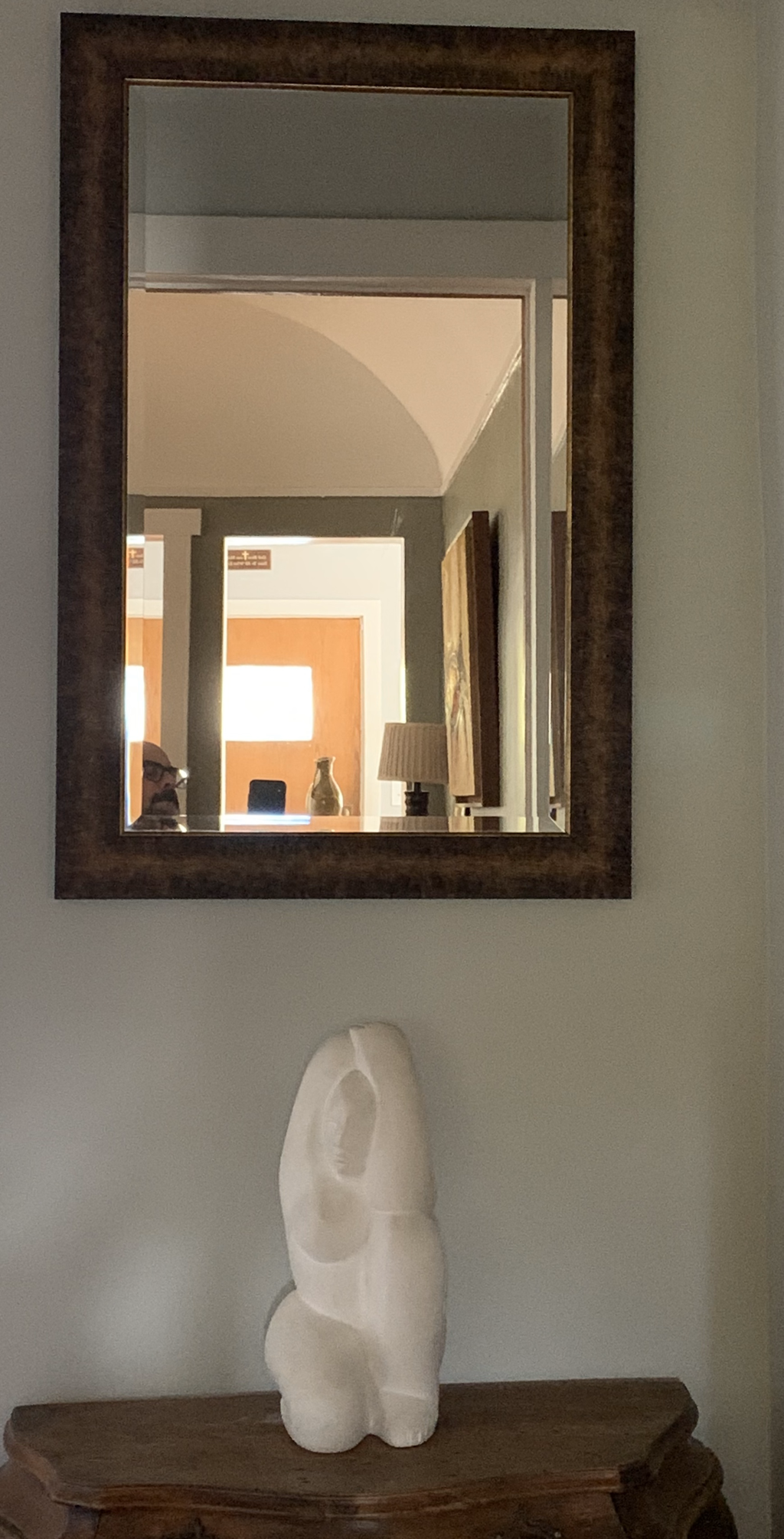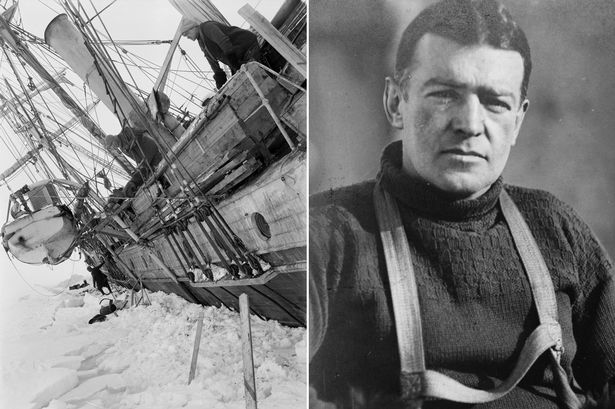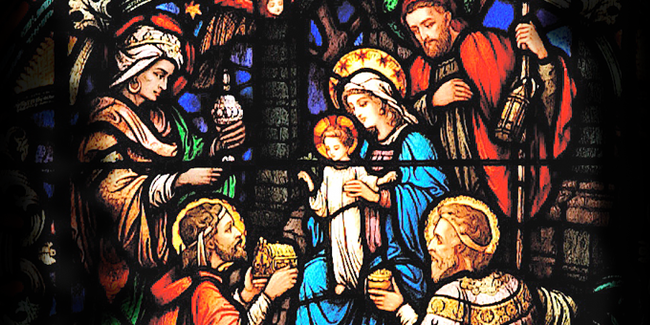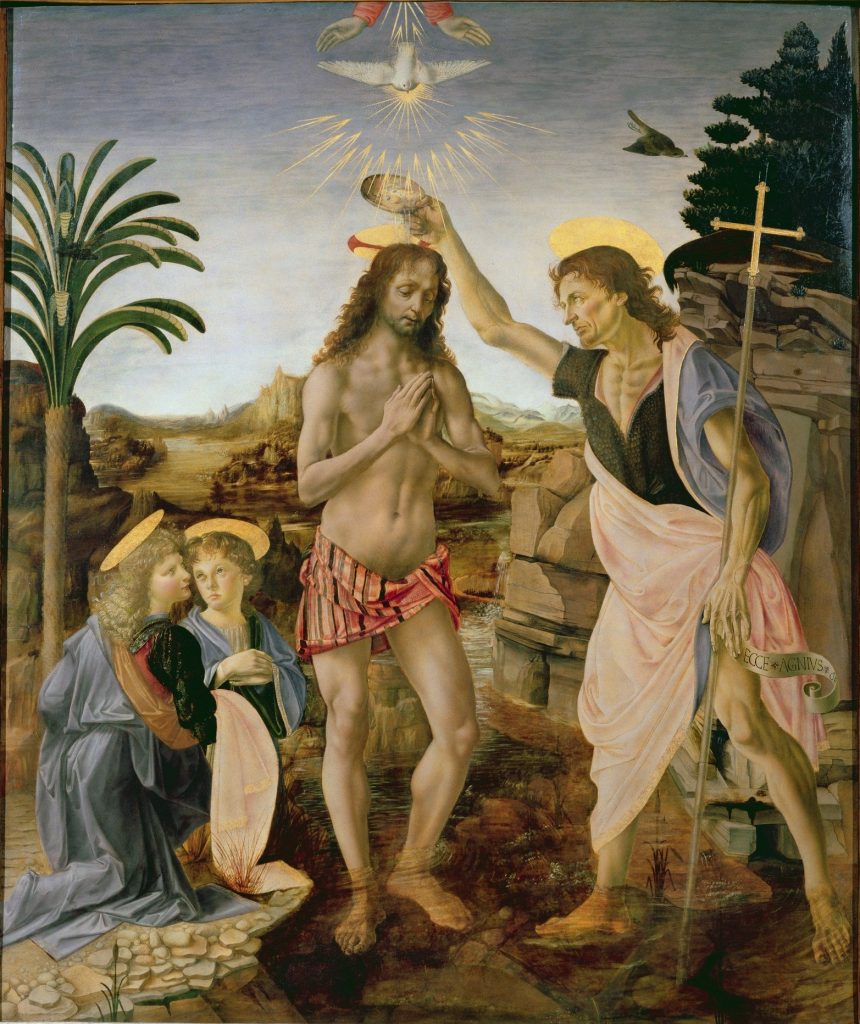Last week we heard Jesus ask, “What are you looking for?” Then he invited Andrew and his friend to come and see for themselves. Today, we are given a different version of this story. I hope that you will listen carefully to these words from Matthew’s gospel, to hear what Jesus is saying among the noises of everyday life.
READ Matthew 4:17-23 From that time on Jesus began to preach, “Repent, for the kingdom of heaven has come near.” As Jesus was walking beside the Sea of Galilee, he saw two brothers, Simon called Peterand his brother Andrew. They were casting a net into the lake, for they were fishermen. "Come, follow me,” Jesus said, “and I will send you out to fish for people.” At once they left their nets and followed him. Going on from there, he saw two other brothers, James son of Zebedee and his brother John. They were in a boat with their father Zebedee, preparing their nets. Jesus called them, and immediately they left the boat and their father and followed him. Jesus went throughout Galilee, teaching in their synagogues, proclaiming the good news of the kingdom, and healing every disease and sickness among the people.
How do you think people first heard Jesus as he began his ministry? How do you think they responded when they heard him say, “Repent, the kingdom of heaven has come near”?
I suspect some people thought he was mad. And some didn’t bother to give him the time. But there were those who were intrigued. They wanted to know more. But what would make these four guys quit their jobs to follow this stranger? “Repent, the kingdom of heaven has come near.” Many people today hear these words and think Jesus is saying, “Follow me, I know a back way into heaven.” Others hear and believe heaven is a place to escape this life – some kind of nirvana that’ll replace the hell they’re in. You might hear something completely different. As for me, I don’t hear Jesus talking about leaving this world so much as I hear him asking what have I done, and more importantly, what I’m doing right now in the world. I hear him saying heaven has come down to earth. So how I’m gonna respond? What am I listening for? Barrie Bates hears Jesus inviting us to examine our past…by taking an honest assessment of our present situation…which will give a clear indication of what our future might look like. In addressing our past, Jesus says, “Repent.” I don’t know about you but this particular word used to raise the hackles on my neck. It carried such a negative connotation that it used to stop me from hearing anything that was said after it. I can still feel the harsh rebuke from those old preachers who’d wag their finger and told I was not good enough to be standing in the presence of God. Truth is, Jesus is pretty straight-forward: “Repent.” If I am hearing him correctly, he’s not saying I’m not good enough. Instead I hear him say, “Ian, get your act together. Take inventory of your past. And let it go. Drop it like a fishing net, and follow me.” When I tune my ear to Jesus I hear him telling me to stop holding onto all those little annoyances and petty gripes and senseless quarrels. I hear him say, let go of that stuff that weighs you down. And grab hold of God who lifts you up. When I tune my ear to Jesus I hear him telling me that I am forgiven, loved, and free to live in the abundance of God’s grace right now.
watch service here
Jesus says, “Repent,” not because you want to get into heaven, but because heaven wants to get into you. This bring us to the present. “For the kingdom of heaven has come near.” It’s not on its way, but it has come. For some crazy reason God wants to dwell among us, to sit in our sin and to love us through it until heaven and earth are of one mind and spirit.
As Rohr often says, “You cannot not live in the presence of God. We are totally surrounded by God all the time and everywhere.” If that is true, then it tells me heaven is within our reach. In fact, “It’s so close we can touch, taste, smell, see, and hear it — if that’s what we’re listening for.” In calling us to “Repent,” Jesus is inviting us to see signs of the kingdom fully alive and God’s abundant glory shinning brightly in us and all around us – especially when it comes to doing for and to others. Thus Jesus tells Simon and Andrew, “Follow me, and I will make you fishers of people.” He is calling them, and us, to participate in the work of God’s kingdom. That’s a huge calling – one not simply reserved for ministers but for all of God’s children. Until heaven and earth are one, we need to shine the light of Christ on the darkness of places. We need to proclaim the Good News of God’s redemptive love. And we need to make known the glory of God’s marvelous works, so others will know they are of value to God. When I hear Jesus say “Repent” I don’t hear a commandment. I hear a call to be a part of God’s community in the world, where the kingdom of heaven is revealed. I hear an invitation to be healed, restored, and redeemed back to my rightful place as God’s beloved child. And I hear a call from God to live fully and faithfully into that responsibility. What is it that you hear? How do Jesus’ words penetrate your heart and soul? How do they cause you to react…to be a part of this community…in the kingdom of heaven? While this church doesn’t have a building, we do have a mission: “To Love God, Love Others, and Serve Both.” We strive to be fishers of people, ambassadors of Christ, evangelists who tell their story so others can see God’s glory in their life. And as we start a new year, we hope that you will join us in this mission. Jesus is calling all of us to do some radical stuff. His demands haven’t changed since James and John dropped their nets to follow Jesus – who went around “teaching in their synagogues and proclaiming the good news of the kingdom and curing every disease and every sickness among the people." Think about those verbs – teaching, proclaiming, and curing. This is how people are able to see that the kingdom of heaven is within their reach. As the body of Christ, we represent Jesus’ sacrificial love by offering ourselves to be a living sanctuary where others can find rest. Whether it’s you or me, or us all together, we are the church. Teachers and professors of God’s love in Christ. We are called to be agents of change reversing the pain and suffering caused by injustice and war. We are to be the balm that heals the world of emotional, physical, or spiritual pain. We are a community that loves and forgives and accepts all people just as God has been gracious to welcome us— if that’s what you’re listening for. My hope for you today is that you will tune your ear towards Jesus. That you will stop fighting with the clanging noises of the world, and dance with our Lord to the divine music of everlasting life… to be a cricket singing…on earth as it is in heaven. Work Cited Bates, Barrie. Repent, Look for Signs of the Kingdom, and Follow Jesus. 01-19-2020. (episcopalchurch.org/library/sermon/repent-look-signs-kingdom-and-follow-jesus-epiphany-3-january-26-2020) Accessed on 01-23-2020. Rohr, Richard. Yes, And…daily meditations. (Cincinnati: Franciscan Media, 2013) p. 71.
1 Comment
To awake alive in the morning is a blessed gift. We hold to a hope, setting our alarm clocks, believing this will be the way we awake every morning. Until that dawn in which we don’t. What then do we make of our day? What hope do we hold onto, believing there is more to life than simply breathing? How should our heart beat? Like ancient drums of the orient far? Like summer rain upon a tin roof? To what rhythm or tempo do we keep with life here and beyond our conscious eye? The 19th Century Russian Orthodox starets, Theophan the Recluse gives us this: “Into every duty a God-fearing heart must be put, a heart constantly permeated by the thought of God; and this will be the door through which the soul will enter into active life. . . . The essence is to be established in the remembrance of God, and to walk in his presence.” “O God, you are my God, earnestly I seek you; my soul thirsts for you, my body longs for you, in a dry and weary land where there is no water.” - PSALM 63:1 Loving the self. Damn that’s hard. I know I ought to do it. But at times it’s just takes to too much energy. In those days I tell myself, “At least God loves me.” That takes me a little ways up the path of life but saying it and believing it are two different things. Yes, God loves me. God is eternal. God is love. Thus, love is always present. I need to learn how to love myself eternally, you know like God loves. But how? Good question, me self! Simply by understanding God’s love as expressed through Jesus the Christ. “The New Testament makes it abundantly clear that Jesus was about love first and foremost, in word and deed. Jesus began with love for God, but inseparably linked that love with love for neighbor [1], with the understanding that neighbor includes the other, the outsider, the outcast, the last, the least, the lost, the disgraced, the dispossessed, and the enemy.
“This love for neighbor was, in turn, inextricably related to an appropriate love for self. In fact, to love neighbor as oneself leads to the realization that oneself and one’s neighbor are actually distinct yet inseparable realities. In today’s world, we must add that, for Jesus, God’s love extends to the wildflower, the meadow grass, the sparrow, and the raven. He saw all of God’s creatures as part of one heavenly realm, as did dear St. Francis, and as do more and more of us.” If in fact these two scholars are correct then I can learn how to love myself by opening my heart and learning how to love my pets, my children, works of art or music that isn’t always to my liking, or food that is different than what I’m used to. “When I think of this [new] kind of Christianity of the future, then, I think of a movement of revolutionary love. I see it as distinctively Christian, but not in any exclusive way, because if we truly see love as Jesus’ point and passion, then the depth of our devotion to Christ will always lead us to love our Jewish, Muslim, Hindu, Buddhist, Sikh, Indigenous, nonreligious, agnostic, atheist, and other neighbors as ourselves. . . “ work cited Adapted from a daily devotional from Richard Rohr on 01/03/2020. Brian D. McLaren, “Three Christianities,” “The Future of Christianity,” Oneing, vol. 7, no. 2 (Center for Action and Contemplation: 2019), 73, 75-76. ”What I am calling an incarnational worldview is the profound recognition of the presence of the divine in literally “every thing” and “every one.” It is the key to mental and spiritual health as well as to a kind of basic contentment and happiness. An incarnational worldview is the only way we can reconcile our inner worlds with the outer one, unity with diversity, physical with spiritual, individual with corporate, and divine with human.
”Every time you take in a breath, you are repeating the pattern of taking spirit into matter, and thus repeating the first creation of Adam. And every time you breathe out, you are repeating the pattern of returning spirit to the material universe. In a way, every exhalation is a “little dying” as you pay the price of inspiriting the world. Your simple breathing models your entire vocation as a human being. Like Christ, you are an incarnation of matter and spirit operating as one. This, more than anything we believe or accomplish, is how all of us continue the mystery of incarnation in space and time—either knowingly and joyfully or not.” Adapted from Richard Rohr, The Universal Christ: How a Forgotten Reality Can Change Everything We See, Hope For, and Believe(Convergent: 2019), 18, 99, 178-180.
In 1979 I got a job as a dishwasher at an Italian restaurant a block away from my house. I was hired by the owner, whose birth name was Francis L. Morris, the same name as a guy who escaped Alcatraz and was never caught. I mention that because Frank was a tough and intimidating man. A retired firefighter from the South Bronx, Frank was raised on the wild streets that he would later serve. Outside men like Evel Knievel and the Bionic Man, Frank was probably the first male figure I looked up to.
However, he was not the kind of teacher parents would want their children to have. He taught me how to cuss more colorfully, how to think more dangerously, and how to survive on the streets more skillfully…and often illegally. He made such an mark on my life that when I went off to college people always asked me what part of New York I was from. Just as someone taught Frank, and he taught me, I try to do my best to pass on the lessons I have learned. In today’s Gospel passage, we see how this kind of teaching works. John the Baptist is out in the wilderness doing something new with an old ritual. People were coming in droves to see what he’s all about. In the midst of the dunking and shouting, Jesus walks by. Out of nowhere, John blurts out, “There’s the Lamb of God who takes away the sins of the world.” He’s teaching those gathered that Jesus is the one who brings true restoration between God and all of creation. Today, we know this because, as the gospel story reveals, John is testifying, he’s teaching us to what God has already made known to him. God tells John and John tells us. This is how teaching works – said knowledge moves from the teacher to the student. And in this case, it’s the kind of knowledge that sends the students to go and learn more.
watch the service here
To those who meets Jesus will learn, it’s more than mere knowledge…it’s excitement, joy, transformation, new life…the kind of newness you can’t help but share with others, if only because others see the change Jesus makes in you.
Look at what happens to Andrew when he leaves his teacher John to follow Jesus. He is enlightened and runs to his brother Simon to teaches him what he knows about Jesus. These two brothers, who become part of the 12 disciples, will go on testifying – teaching others what they know in their hearts to be true about God’s transformative love in Christ. To those they teach, will in turn will go and do the same and on and on and on it goes… right up to this very moment in time. (Bowron) And that’s where we come in. Like every aspect of life, we eventually make the move from student to teacher. As followers of Jesus, especially we who have been spiritually awakened to our belovedness in Christ, we have to proclaim this truth: Jesus is the Lamb of God who takes away the sins of the world. The question we all must ask ourselves then is how am I testifying this good news? How am I telling or showing the world that they too are a beloved children of God, made in Christ and filled with the Holy Spirit? This is not just my job, but yours as well. We are all ministers, teachers, of this truth. At the end of Matthew’s gospel, Jesus gives his students a great task. He tells them to go and make disciples of all nations. Go make students who then can become teachers who can go and teach others of God’s redemptive love and grace. Jesus knew if we don’t continue what he started then people will not know that they are loved, no matter what. They will be left empty, searching for anything culture and society offers to fill the void. People are watching and listening, they are learning from you whether you know it or not. So how will you teach them? In what way do you live your life that bears witness to Christ? How do you show the excitement of your faith like Andrew did when he ran off and told his brother? I understand not everyone is comfortable expressing their faith verbally. Most of us don’t want to be pushy or have people avoid hanging out with us. So here’s something I learned from a wonderful mentor about circumventing this uncomfortableness. He said, “We don’t beat people into the kingdom of heaven. Instead we must live the kingdom in such a way that others will want to join us there.” When I was going through a difficult time in my life, a friend asked how I was able to cope. I answered, very much like Jesus did, with my own an invitation of “Come and See.” I asked, “What are you doing on Sunday at 11:00 am?” She accepted my invitation to come and learn. And a year and a half later, she married me in that church.
Start with love. Start with caring for someone else. Start small if you want to, but start. The more you practice proclaiming this the easier it becomes and bigger it grows. John lit the fire in Andrew, and Andrew lit the fire in Simon, and so we too are to light up the world as God’s beloved children.
Before her death some 500 years ago, St. Teresa of Avila wrote: “Christ has no body now on earth but yours, no hands but yours, no feet but yours. Yours are the eyes through which to look out Christ’s compassion to the world; yours are the feet with which he is to go about doing good; yours are the hands with which he is to bless men now.” Yes, Jesus invites you to come and see. But today, I encourage you to go and be. Go and be a living testimony to God’s glory in your life. Go and be “like John, be like Andrew, be like the uncountable cloud of witnesses to God’s gospel of love, justice, peace, and presence. Show us all in your words and deeds, in all of your life, that Jesus is the Lamb of God who has taken away the sin of the world.” (Bowron) Flash your light on this message and teach the world to see their place in the kingdom of God. Amen. Work Cited Bowron, Josh. Testimony, Epiphany 2. Posted on January 12, 2020 (accessed 01/16/2020). https://episcopalchurch.org/library/sermon/testimony-epiphany-2-january-19-2020. Bartlett, David L and Barbara Brown Taylor, eds. Feasting on the Word, Year A vol 1. (Louisville: Westminster John Knox, 2010) p. 260.
Today, the church celebrates the Baptism of Jesus; another world changer forged in water. Jesus was also a leader who put others before himself, and was kind and generous to all people, be it friend or foe. As such, many would follow even if it would cost them their life.
While Shackleton developed his skills on the high seas, Jesus got his from reading scripture and shaped his life accordingly. In Luke we learn that when Jesus was only 12 years old, he was in the Temple, sitting among the teachers, and asking tough questions. “Everyone who heard him was amazed by his understanding and his answers” (Luke 2:46-47). Long before Jesus was baptized, the prophet Isaiah wrote these words. I invite you all to imagine hearing them as Jesus first did. And think about how they might shape who you are. Read Isaiah 42:1-9
When you heard these words, who did you imagine Isaiah talking about? I’m sure it wasn’t anyone in seats of power in Washington DC. Imagine being a politician and running on a platform of mercy – caring for the weak and vulnerable, executing justice among the nations, or heaven forbid, releasing prisoners from their cells. What would Fox News call you? Or how would Twitter or SNL would roast you?
So who than is this one chosen by God, who does not break a bruised reed or extinguish a dimly lit wick? Believe it or not this is a hotly contested question. Was it a person? Someone like Shackleton who did the impossible to ensure his entire crew made it safely home after being shipwrecked in the darkness of winter and no hope of survival. Some argue it’s a collective group – like Israel or the United States – who believed they were chosen by God to bring justice into the world. Because it’s written in poetic form, there are those say Isaiah’s words are symbolic, a metaphor for living life. When I asked my wife who she thought this passage was about her answer surprised me. She said, “It sounds like you.” (I know many people who would beg to differ. Including myself.) To her credit, she meant it allegorically describing the way I evangelize. “Despite challenges and doubters you face,” she said, “you do not quench their light or grow faint, instead you persevere and grow through it.” Although I love my wife’s perspective of me, given my Christian upbringing, it’s difficult to see anyone other than Jesus in this passage. Who else checks off all these boxes? But believe it or not, and I know what I’m risking by saying this, my wife is right too suggest that maybe God is not just talking to us in this passage, but talking about us as well? It’s easy for us to read Jesus these words, but not so when it comes to seeing who we are in them. That’s why I asked you to hear these words as Jesus did. Jesus took the scriptures to heart and used them to defined who he as and all that he stood for. In Matthew 5:17 Jesus declares, "I did not come to abolish the laws or the prophets; but to fulfill them.” This is how he understood his ministry and how he ushered in the Kingdom of God.
watch service here
Sadly, many of us view the Bible as some dusty old history book, forgetting that it’s the Living Word of God. We need to read these sacred text less like a history lesson and more like a user manual for living life. Like Jesus, we need to take these words and infuse them into every aspect of our lives. This is how we, in our own baptism, participate in the Kingdom of God; leading the way for others to follow.
The gospels are filled with examples of Jesus living out the word. One in particular is like our scripture reading today. In Luke 4, Jesus is asked to do the reading at his hometown church. The Rabbi handed him a scroll from the prophet Isaiah. Standing before family and friends, he read, “The Spirit of the Lord is upon me, because he has anointed me to bring good news to the poor. He has sent me to proclaim release to the captives and recovery of sight to the blind, to let the oppressed go free, to proclaim the year of the Lord’s favor” (Luke 4:18-19). At the end, Jesus didn’t say, “This is the word of the Lord, thanks be to God.” Instead he broke tradition and declared, "Today this Scripture has been fulfilled in your hearing" (v. 20). On one hand, Jesus is boldly announcing who he is, and on the other he’s calling us into action. To not only be hearers of the word, but doers as well. Like trekking across Antarctica, living faithfully in God’s word is a risky endeavor. So maybe we’d rather make Isaiah’s passage about Jesus, because it’s easier to let him do all the heavy lifting. We give Jesus the responsibility to deal with others so we don’t have to. We say Jesus loves. Jesus saves. Jesus heals. Jesus does for us what we can’t do for ourselves. That is true. But if we only see Scripture talking about Jesus, then I fear we’ll miss out on the bigger blessing that God has given to the world. Like I said last week, we are God’s beloved children, chosen in Christ to participate fully in God’s redemptive grace. We are stamped with God’s love and filled with the Spirit of Christ to be a light to the nations. It’s our job to stand up for justice…without shouting, breaking, fainting, or quenching. It’s our job to free people of the bonds that bind them without judging, shaming or belittling anyone in the process. It’s our job to be a living example of God’s covenant to all people, despite of where they’re from or what they believe. God has called us in Christ …to lead the way of the greatest exploration of all time: the journey back to God’s loving embrace. Jane Goodall once said, “You cannot get through a single day without having an impact on the world around you. What you do makes a difference, and you have to decide what kind of difference you want to make.” Just as Jesus cared for the bruised and the hurt, so must we. Is there someone in your life who needs their pain soothed or a hurt mended? If so, lead the way by being the healing balm they need to be well. Just as Jesus cupped his hands around the dimmest wicks until it was able to shine brightly, so too must we. Do you know someone whose light is barely flickering and in danger of going out? If so, then strengthen and stoke that ember until a bright light shines within them. Jesus led by example. And in doing so opened the eyes of the blind to see God in their midst. Do you know someone who’s having trouble seeing God’s love and grace? If so, lead the way by being God’s love and grace for them. Let us not forget that the same Spirit that descended on Jesus at his baptism is the same Spirit sealed within us at ours. Same is true about his mission and ours. Just as Jesus left the wild, raging waters of the Jordan to proclaim the gospel, so too are we called to participate in God’s Kingdom as a fulfillment of God's Word. Jesus changed the world by living fully and faithfully to God’s word, so too are we do the same. We can do this because God has anointed us with all the abundance of God’s glory at our disposal. And so, in the name of Christ, go and be the person who changes the status quo, who stands up for justice and fairness for all people. Go and be the one who heals the broken and opens the eyes of the blind. Go and be the one who frees other’s from the prisons they have put themselves in. Go and be the light of Christ that leads others on the great exploration of life, and bring them safely home to God. Work Cited Bartlett, David L and Barbara Brown Taylor, eds. Feasting on the Word, Year A, vol 1. (Louisville: Westminster John Knox, 2010) pp. 218-223. Morrell, Margot and Stephanie Capparell. Shackleton’s Way: Leadership Lessons From The Great Antarctic Explorer. (New York: Penguin, 2001) p. 15.
As the leaders of our country launched another war in the Middle East, we can learn from the wars we fought right here at home, on our own streets against our own brothers and sisters. The race war. The gender war. The war on poverty. The war on drugs. We've gotten too good at starting wars. And have failed at nearly all of them since the end of the second great World War. Yet the little battle that King fought was not won in the courts as much as it was won in the hearts of the people.
In some hearts there is love. In others there is hatred. But to "build a nation in which neither punishment nor privilege is attached to one's race, skin color, nationality, gender identity, sexual orientation, or any other human difference" requires one thing, writes Adam Russel Taylor. "It starts with an understanding that we are beloved by God." We are all made in God's image. We are all tagged and marked by God's finger print. We are all made equally valued and respected by God, no matter our vices, shortcomings, or political affiliations and contradictions. If we believe this to be true, that we are beloved children of God, then we ought to treat all people as if we are going to wake up tomorrow and they are going to be our roommate, our in-laws our neighbors, our spouses, our doctors, our teachers, our fellow human traversing the same creation albeit different paths. We ought to care for each other and look out for one another's best interest. War is not the answer. Love is. It all begins with God's love for us. It is God who first reconciled with us. It was God who redeemed us. And in the end, it is God who created a community of beloved people. It all starts with having love for each other, and a willingness to be committed to finding a common ground to begin building a beloved community of empathetic and supportive grace. "It's a community in which we are constantly seeking to build and restore right relationships," writes Taylor. What might restoration and reconciliation look like if our hearts look like God's? Given our success rate with warfare, I'd say it's worth a try. Taylor, Adam Russell. Sojourners: Vol. 49, No. 1. January 2020, p. 10.
Epiphanies happen not just in angels, stars, babies, and water, but in ordinary moments like holding a hand, or watching a sunset or driving to work. They can pop up immediately or gradually appear over time. For Christians epiphanies are given to us by God, to awaken us to the mysteries of God in Christ.
I think the scripture that was chosen for today speaks to those points and gives us a new vision of who God is, and who we are as created beings in Christ. Read Ephesians 1:3-10 here. In him we have redemption through his blood, the forgiveness of our trespasses, according to the riches of his grace that he lavished on us.
Ephesians is a wonderful letter that was written as a call for Christian unity, and to be holy and right before God. Years ago, when I read these opening verses, I had an epiphany. Dare I say one that was divine, profound, and life changing. Yet it’s so simple I almost overlooked it. What was it? God chose me. I am loved and valuable to God who has blessed us all in Christ. Talk about a revelation!
When I feel alone or get down on myself for messing up, I have these words to remind myself that I’ve been chosen by God, redeemed by Christ, and sealed by the Holy Spirit. I’m not making this up to feel good about myself. I already feel good knowing this was God’s plan for you and me since the very beginning. To understand that I am ‘in’ Christ not only changes the way I see myself, but it also encourages me to move beyond myself to become a larger part of God’s eternal vision. The expression ‘en Christo’ or ‘in Christ’ occurs 216 times in Paul’s letters alone. According to Richard Rohr, ‘en Christo’ is “Paul’s codeword for the gracious, participatory experience of salvation.” As Rohr points out, “We’ve never been separated from God.” Instead we’ve been “living inside this cosmic identity” that has already been put in place. God chose us long before we chose God. This not only saves us, but it drives and guides towards true Christlike transformation. “We are all in Christ, willingly or unwillingly, happily were unhappy, consciously or unconsciously.” By this revelation I take Paul at his word, that we all possess the power to live holy and rightly before God “who has blessed us in Christ with every spiritual blessing.”
watch the service here
Now spiritual blessings are different than material ones. A person may have great material wealth yet be bankrupt when it comes to the spiritual blessings of joy, peace, wisdom, contentment, or just being in a right relationship with God.
As we move into a new year and decade, I looked back over the last ten years to see what I accomplished. I changed careers. I learned (and forgotten) ancient Greek and Hebrew. I earned a Masters of Divinity while beating cancer. I got ordained and moved my family across the country to lead my first church. I then moved my family back to plant and shape this new church. In the last decade I also visited 8 countries on four separate continents. I may not have attained much material wealth along the way, but spiritually I feel rich beyond measure. While going through some great challenges, it was hard to see what God was doing. But because God chose me, I am always alive in Christ. And I am free to live this way or not. Too many of us waste life trying to obtain things that are worth much less than the spiritual blessings God already gave us in Christ. We chase after meaningless things so we can keep up with the Jones; we sell ourselves short to belong to some group or team or tribe; we seek to have more likes, more followers, and to build up an image that lives or dies by other people’s opinions. Obtaining wealth, being a part of things and enjoying a good life is fine, but God has greater plans for you and me. Before the earth’s foundations were set into motion, “God had settled on you as the focus of his love.” God didn’t just choose you for his team but God built a team around you. Before the very first sunrise ever appeared, God adopted you to be his beloved child. Let that sink in. God knows everything about you and chose to accept you for who you are – rich or poor, sinner or saint – you’re already on the best team. We areno surprise to God. He knew what he was getting into with us. Instead of throwing in the towel with disappointment because of our inability’s, God came to be with us, as one of us. I want you to say out loud, “I am a beloved child of God. I am worth more than any earthly treasure.” This should be our mantra for the new decade?
British journalist and renown atheist, Marghanita Laski, made an amazing confession on TV once when she said, ‘What I envy most about you Christians is your forgiveness.’ She added, rather sadly, ‘I have no one to forgive me.’ In her statement lies Paul’s great epiphany – that in Christ, God has done for Laski according to the riches of his grace that he lavished on us.
It’s that grace, in my humble opinion, that God reveals the single most important blessing in Christ. Grace is both the power and the vulnerability of God made manifest in Christ; not just for our sake, but to the entire order of the cosmos. I can’t imagine life without grace. Think about it, sick days wouldn’t exist, being late to an appointment would be unforgivable, and every bad thing you ever did would forever define who you think you are. Because of God’s grace, we need not hold on to our past but only move forward and closer to God. So what I want you to know is that: In Christ, we have God’s grace. In Christ, we have God’s peace. In Christ we are united to God’s perfect love. If we believe God is love, then we need to seek and find this love in and all around us; and to share that love in all our wonderful and difficult relationships, responsibilities, and circumstances. It’s up to us to claim the truth – God chose us…and we are loved no matter what. This is where our faith comes into play. Faith is how we are able to see God’s will for us. I like to say we have faith in Christ so we can have the faith of Christ. By faith we are able to see others with Christlike eyes, and love our enemies with a Christlike heart. As faithful children of an all loving God, it’s up to us to share this good news to help others know who they are. As God’s children we too are a people of forgiveness and reconciliation, called to heal ourselves and others with God’s love. We are called to be united, to tear down the walls between us and our neighbors. We are called to seek peace and to stand up for justice and fairness, and to live in Christ as Christ lives in us. How blessed are we, and every other human being, to belong to the same God of Love who chose to be with us and to dwell in us. As you leave here today, I encourage you to receive God’s love and to relax in it. To sit and breath in God’s love as you exhale the mantra, “I am a beloved child of God. I am worth more than any earthly treasure.” As we move from Christmas to the New Year, let us not worry about you’ve done but what you can do not, today, knowing what God has already done for you in Christ. It’s in this grateful place that God transforms you in the most unexpected ways. Awakening in you an epiphany, for others to discover who they are…in Christ. Work Cited: Nouwen, Henri. You Are The Beloved: Daily Meditations for Spiritual Living. Convergent Books: 2017. Rohr, Richard. The Universal Christ: How A Forgotten Reality Can Change Everything We See, Hope For, and Believe. Convergent Books: 2019. |
Ian MacdonaldAn ex-copywriter turned punk rock pastor and peacemaker who dedicates his life to making the world a better place for all humanity. "that they all might be one" ~John 17:21“Prius vita quam doctrina.”
~ St. Thomas Aquinas (1225–1274) * “Life is more important than doctrine.”
Archives
June 2024
|

